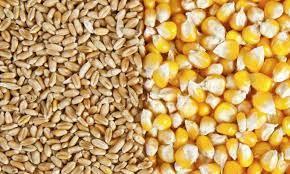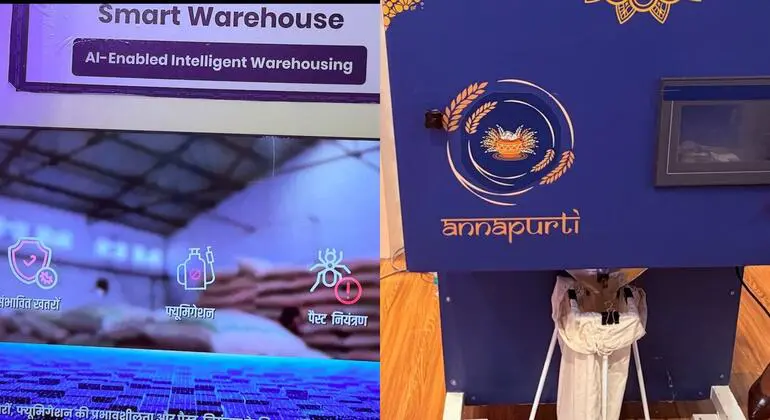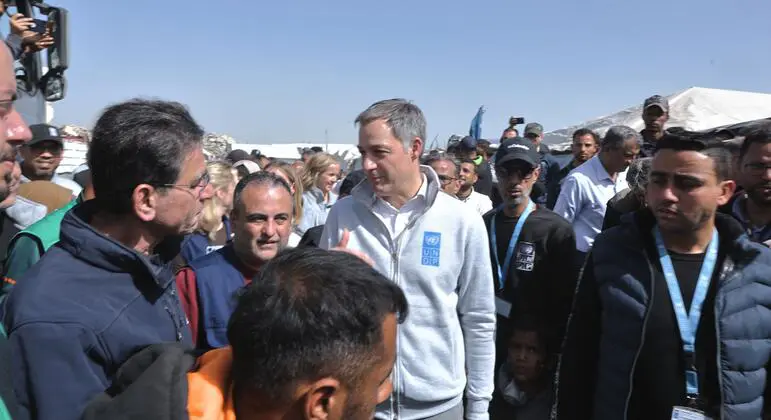A terrible crisis is coming…
More than 25 million tons of Ukrainian wheat cannot be exported due to the war. The UN warns that this will cause a global grain crisis. Prior to the Russian invasion, Ukraine was the world’s fourth largest exporter of wheat.
Wheat in Ukrainian warehouses is beginning to rot, warn Ukrainian producers. 25 million tons of grain must be released before the new harvest.
“We are transporting wheat from Odessa to the Romanian port of Constanta. All our ports are closed. We have to look for new routes through Romania.” – tell from the industry
The most preferred route for transporting Ukrainian wheat is through the Danube ports of Reni and Izmail. From there, deliveries continue to Constanta. The war turned the Romanian port into a major center for the export of Ukrainian agricultural products.
“Port operations have increased by 10-11 percent compared to last year.” said Florin Goidea, director of the port of Constanta.
However, diverting supplies through Constanta has posed a huge transport challenge for Romania. Urgent repairs of the railway network are needed, especially in the area of the Black Sea port. Out of 100 railway lines – 35 will be repaired in three months. And the rest until the end of the year.
The European Union said that precise routes for the export of Ukrainian goods should be determined soon. Until last year, Ukraine was the second largest importer of wheat and corn for the European Union.
Ukraine is the largest producer of sunflower oil in the world and ranks among the six largest exporters of wheat, corn, chicken and even honey. The money she earns from agriculture – $ 28 billion last year – is now even more important because of the war, and production is even more important for a world where record prices raise food security concerns. Bloomberg TV Bulgaria.
Egypt and Turkey, which rely on Russian and Ukrainian grain, are struggling with rising inflation. The Cairo government is considering raising the price of subsidized bread for the first time in four decades. Meanwhile, the shortage of sunflower oil in Europe is forcing suppliers to look for alternatives. Supermarkets in the UK limit the amount of cooking oil that customers can buy.
As the world stares at Ukraine, the Middle East is taking a new path
This, in turn, has led to a sharp rise in vegetable oil prices all the way to India, where street vendors steam food instead of frying it. The demand for even palm oil, which has been accused of causing deforestation and is not very good for health, is also increasing.
Ukrainian President Volodymyr Zelensky said Russia, a key exporter of agricultural products, was deliberately targeting agricultural land, planting mines in fields and destroying equipment and storage facilities. The allegations were backed by EU Commissioner Janusz Wojciechowski, who said the bloc would seek to help Ukrainian farmers.
Not only is the country increasingly unable to export as transit routes are cut off, but Ukraine must maintain more limited stocks of products to ensure its survival, Ukraine’s agriculture minister said last month.
Irish Prime Minister Michel Martin reiterated the warnings on April 20th after meeting with his Ukrainian counterpart on his way to Washington. “There is a clear goal of creating a food crisis in addition to the energy crisis, as well as waging an immoral and unjust war against Ukraine itself,” Martin said.
The Russian military has consistently stated that it is not targeting civilian targets, despite widespread evidence to the contrary. Its limited withdrawal from Kyiv means farmers can sow in previously occupied areas such as Chernihiv, but the harvest of some of Ukraine’s most important crops could still be halved this year.
It is difficult to exaggerate the importance of agriculture for Ukraine, called the “granary of Europe” because of its rich black fertile soil, which is ideal for growing crops. Before the war, agriculture accounted for more than 10% of Ukraine’s economy and 40% of exports. Farmers are exempt from military service to ensure the preservation of the industry.
The war has already destroyed some of the progress that Ukraine has made over decades of growing its agricultural industry. Its wheat harvest in 2021 was the largest since the collapse of the Soviet Union three decades earlier. Eventually, farmers will have to recover and free their land from shelling and chemical pollution.
The Organization for Security and Cooperation in Europe has warned of “potentially catastrophic” effects on the environment, including poor drinking water quality, chemical spills and floods.
“Supply networks need to be restored, people need to be returned and the necessary capital needs to be restored to restore production,” said Oleg Nivievsky, a professor at the Kiev School of Economics. “I would say it will take two or three years to return to previous levels of exports. That’s what farmers say.”
So far, only small quantities of grain and other products have been exported by rail after Russia blocked Ukraine’s Black Sea ports and shelled vital infrastructure. Ukraine is asking Europe to provide river vessels and trucks to sustain reduced exports.
All over the world, countries that depend on Ukrainian sunflower oil and feed are trying to find alternative supplies. Companies are rushing to replace sunflower oil in recipes from biscuits to potato chips. Some supermarkets and fish and chips stores in the UK are considering replacing sunflower oil with palm oil, which will lead to record prices.
According to the World Wildlife Fund, palm oil has come under increasing scrutiny in recent years for its role in deforestation and has been accused of contributing to the destruction of endangered species such as orangutans.
Farmers are short of non-genetically modified animal feed, which usually comes from Ukraine, and the EU is easing import rules to make it easier to import from South America.
In addition, food aid supplies to countries at risk of starvation are being disrupted. Somalia receives almost 70% of its wheat imports from Ukraine and the rest from Russia, and is currently threatened by the worst drought in years.
According to the UN, Tunisia and Libya also receive more than a third of their wheat from Ukraine. According to the World Food Program, food supplies – peas and barley – from the Ukrainian port of Odessa to West Africa have been disrupted.
“Countries with low incomes and food shortages are always the most vulnerable,” said Laura Wellesley, a senior fellow at Chatham House in London, during a lecture on the impact of the conflict on April 13. “But low-income households, all the world’s economies, are already experiencing economic insecurity in households and food insecurity.”
Prices were already at record highs due to overpriced energy and logistics problems as the global economy recovered from the pandemic, and now countries such as Egypt, Hungary, Indonesia, Moldova and Serbia have imposed restrictions on some food exports.
At the same time, Russia continues to export grain to some of its largest customers, even as transportation costs rise and some traders seek to avoid Russian goods. It is even possible to get a new business. According to Geneva-based Harvest, which provides harvest data, Israel, which often buys from Ukraine, bought Russian wheat last month.
In Europe, farmers have complained about cheaper food imports from Ukraine entering the market. The EU is now postponing rules aimed at making agriculture more environmentally friendly, including postponing planned restrictions on the use of pesticides. It also plans to free up nearly 4 million hectares of uncultivated land to plant more money crops.
“What is happening in Ukraine will change our whole approach and view of the future of agriculture,” EU Commissioner Wojciechowski said on March 17th. “We need to have a policy in place to ensure food security.”







